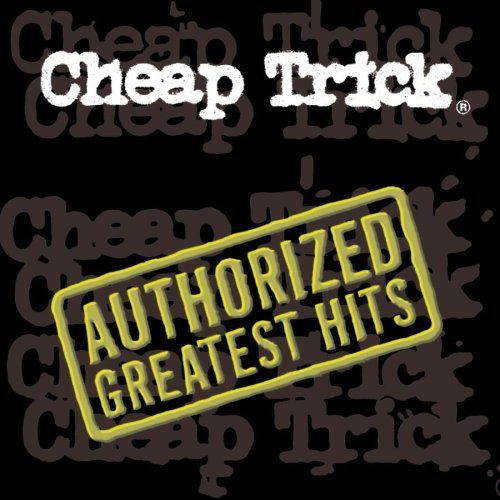
Authorized Greatest Hits (2000)

1.I Want You To Want Me (Live)
2.Ain't That A Shame (Live)
3.Southern Girls
4.Surrender
5.Stop This Game
6.Dream Police
7.If You Want My Love
8.Tonight It's You
9.Everything Works If You Let It
10.Mandocello
11.I Can't Take It (Live)
12.She's Tight
13.That 70's Song
14.Walk Away
15.Can't Stop Fallin' Into Love
16.The Flame (Live)
A decade after the original Greatest Hits release—a serviceable but
uninspired collection that gathered together Cheap Trick's chart success—the band opted to take matters
into their own hands with Authorized Greatest Hits. The implication, of course, was clear:
the band sought to reframe their own narrative, curating not just a setlist of radio staples, but
a declaration of identity.
The timing of this revision is worth noting. By the late 1990s, Cheap Trick had endured
not only the fluctuations of public taste, but the capricious nature of industry decision-making.
Their earlier compilation had been dictated largely by commercial priorities. This version, though
still aimed at the casual fan, reveals a group attempting to exert retrospective control over their legacy.
Musically, the results are mixed. There are welcome additions—the likes of Southern Girls
and ELO Kiddies are rightly repositioned as canonical—and the flow of the track listing is more coherent.
Gone is their ill-fated Beatles cover Magical Mystery Tour
(an experiment that felt more contractual than inspired), and while Voices and Don’t Be Cruel
are also omitted, only the latter leaves a conspicuous absence.
Curiously, two of the most crucial tracks—I Can’t Take It and the ever-divisive
The Flame—appear in live versions. It's a bold, perhaps baffling, choice.
Unlike I Want You to Want Me, whose At Budokanincarnation redefined the song, these renditions
add little beyond audience noise. The studio cuts remain superior in form and feel.
In sum, Authorized Greatest Hits functions less as a corrective and more as a band’s reclamation
of its own mythology. It neither revolutionizes nor damages their catalog, but it does, in its own understated way,
underline the complexities of legacy, ownership, and rock and roll revisionism.
Go back to the main page
Go To Next Review